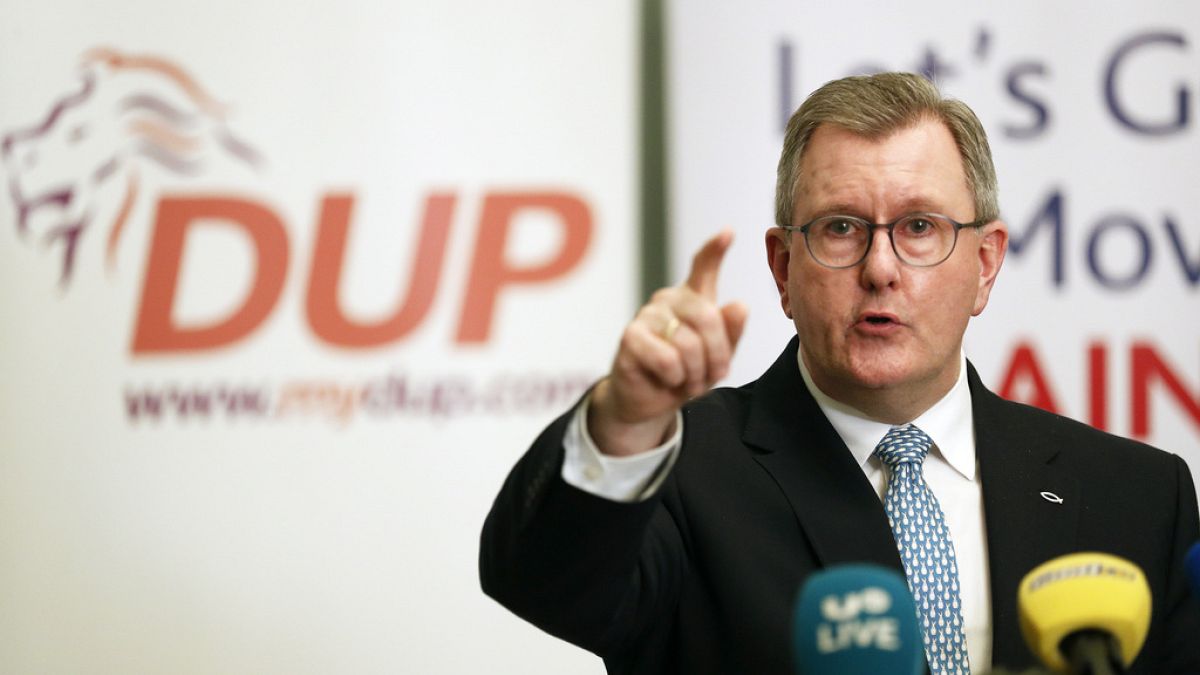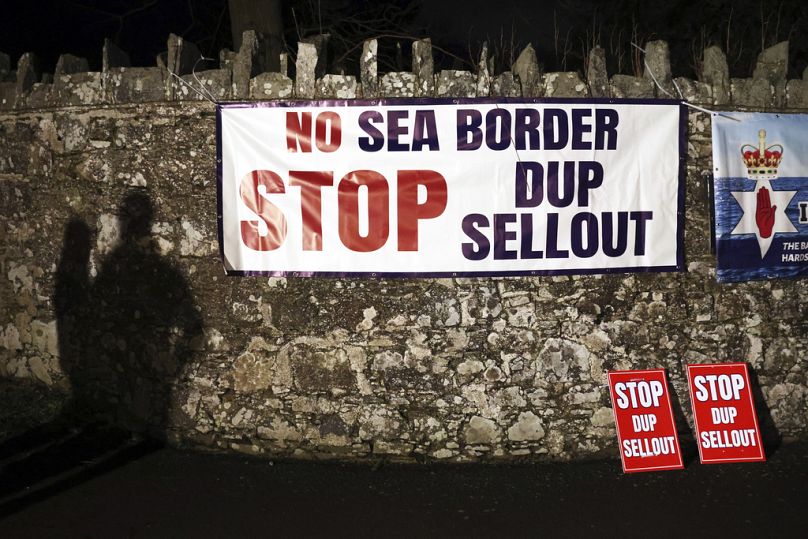The DUP’s decision faces opposition from some hard-line unionists, who fiercely guard Northern Ireland’s place in the UK.
Northern Ireland’s largest British unionist party has agreed to end a boycott that left the region’s people without a regional government for two years, it said on Tuesday – a breakthrough that could see the shuttered power-sharing administration in Belfast restored within days.
The breakthrough came shortly after the UK government gave Northern Ireland's political parties until 8 February to restore the collapsed government in Belfast or face new elections.
After a late-night meeting, Democratic Unionist Party leader Jeffrey Donaldson announced that the party’s executive has backed proposals to return to the government.
He said agreements reached with the UK government in London “provide a basis for our party to nominate members to the Northern Ireland Executive, thus seeing the restoration of the locally elected institutions.”
“All the conditions are in place for the Assembly to return,” Northern Ireland Secretary Chris Heaton-Harris said after the news came through.
“The parties entitled to form an Executive are meeting today to discuss these matters, and I hope to be able to finalise this deal with the political parties as soon as possible.”
A way forward
Under power-sharing rules established as part of Northern Ireland’s peace process, the administration must include both British unionists and Irish nationalists.
But the DUP, which fiercely supports keeping Northern Ireland in the UK rather than unifying it with the Republic of Ireland, walked out in February 2022 in a dispute over post-Brexit trade rules.
Since then, it has refused to return to the government and share power with the Irish nationalist party Sinn Fein, which now has the most seats in the Assembly.
The walkout left Northern Ireland’s 1.9 million people without a functioning administration to make key decisions – this as the cost of living soared and backlogs strained the creaking public health system.
Teachers, nurses and other public sector workers in Northern Ireland staged a 24-hour strike this month calling on politicians to return to the government and give them a long-delayed pay raise.
The British government agreed to give Northern Ireland more than £3 billion (€3.5 billion) for its public services, but only when the executive in Belfast is up and running again.

